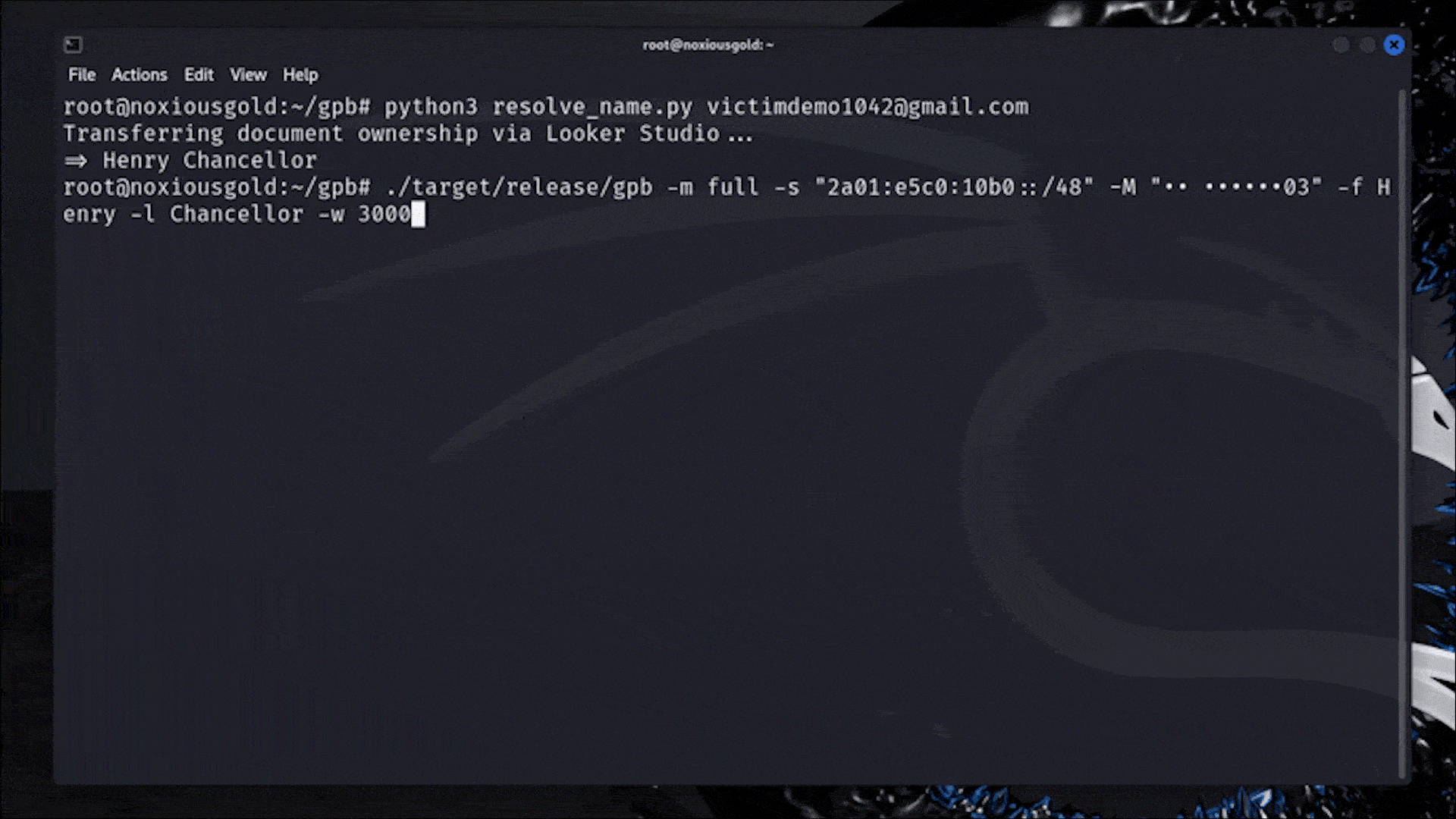A Researcher Figured Out How to Reveal Any Phone Number Linked to a Google Account
-
$5,000
This is like 1/10th of what a good blackhat hacker would have gotten out of it.
-
I keep telling people, it's a matter of when, not if.
Do not trust corporations.
-
Google, Apple, and rest of big tech are pregnable despite their access to vast amounts of capital, and labor resources.
I used to be a big supporter of using their "social sign on" (or more generally speaking, single sign on) as a federated authentication mechanism. They have access to brilliant engineers thus naively thought - "well these companies are well funded, and security focused. What could go wrong having them handle a critical entry point for services?”
Well as this position continues to age poorly, many fucking aspects can go wrong!
- These authentication services owned by big tech are much more attractive to attack. Finding that one vulnerability in their massive attack vector is difficult but not impossible.
- If you use big tech to authenticate to services, you are now subject to the vague terms of service of big tech. Oh you forgot to pay Google store bill because card on file expired? Now your Google account is locked out and now lose access to hundreds of services that have no direct relation to Google/Apple
- Using third party auth mechanisms like Google often complicate the relationship between service provider and consumer. Support costs increase because when a 80 yr old forgot password or 2FA method to Google account. They will go to the service provider instead of Google to fix it. Then you spend inordinate amounts of time/resources trying to fix issue. These costs eventually passed on to customer in some form or another
Which is why my new position is for federated authentication protocols. Similar to how Lemmy and the fediverse work but for authentication and authorization.
Having your own IdP won’t fix the 3rd issue, but at least it will alleviate 1st and 2nd concerns
They have access to brilliant engineers
Not really.
-
Damn that's interesting. I like how they walked through step by step how they got the exploit to work. This is what actual real hacking is like, but much less glamorous than what you see in the movies.
-
I don't remember that, however it doesn't surprise me at least for a radius around your area. I'd be surprised if they had all of them from all the states
You could just have them borrow one from whatever other library had it. Hell, you could just call the phone company and order the one you want yourself. Fuck, you could just call 411 and have them look it up for you right then.
-
Phone books from outside my region were available at the library; that place where they store a consolidated collection of books for just anyone to sign out and use.
I once used one to look up my friend from summer camp. He lived in New York City and I didn't live anywhere close
Library had a bunch of NYC phonebooks
-
Without researchers like that, someone else would figure it out and use it maliciously without telling anyone. This researcher got Google to close the loophole that the exploit requires before publicly disclosing it.
That's the fallacy I'm alluding to when I mention stuxnet. We have really well funded, well intentioned, intelligent people creating tools, techniques and overall knowledge in a field. Generally speaking, some of these findings are more makings then findings.
-
I think the method of researching and then informing the affected companies confidentially is a good way to do it but companies often ignore these findings. It has to be publicized somehow to pressure them into fixing the problem.
Indeed, then it becomes a market and it incentivises more research on that area. Which I don't think is helpful for anyone. It's like your job description being "professional pessimist". We could be putting that amount of effort into building more secure software to begin with.
-
I think it's important for users to know how vulnerable they really are and for providers to have a fire lit under their ass to patch holes. I think it's standard practice to alert providers to these finds early, but I'm guessing a lot of them already knew about the vulnerabilities and often don't give a shit.
Compared to airing this dirty laundry I think the alternatives are potentially worse.
Hmm I don't know... Users usually don't pay much attention to security. And the disclosure method actively hides it from the user until it no longer matters.
For providers, I understand, but can't fully agree. I think it's a misguided culture that creates busy-work at all levels.
-
$5,000
This is like 1/10th of what a good blackhat hacker would have gotten out of it.
I always wonder what's stopping security researchers from selling these exploits to Blackhat marketplaces, getting the money, waiting a bit, then telling the original company, so they end up patching it.
Probably break some contractual agreements, but if you're doing this as a career surely you'd know how to hide your identity properly.
-
Damn that's interesting. I like how they walked through step by step how they got the exploit to work. This is what actual real hacking is like, but much less glamorous than what you see in the movies.
When do we get to the part where a bunch of UNIX logs get projected, backward, on someone's face
-
I always wonder what's stopping security researchers from selling these exploits to Blackhat marketplaces, getting the money, waiting a bit, then telling the original company, so they end up patching it.
Probably break some contractual agreements, but if you're doing this as a career surely you'd know how to hide your identity properly.
Chances that such an old exploit get found at the same time by a whitehat and a blackhat are very small. It would be hard not to be suspicious.
-
Chances that such an old exploit get found at the same time by a whitehat and a blackhat are very small. It would be hard not to be suspicious.
Yes, but I was saying the Blackhat marketplaces wouldn't really have much recourse if the person selling the exploit knew how to cover their tracks. i.e. they wouldn't have anyone to sue or go after.
-
Google, Apple, and rest of big tech are pregnable despite their access to vast amounts of capital, and labor resources.
I used to be a big supporter of using their "social sign on" (or more generally speaking, single sign on) as a federated authentication mechanism. They have access to brilliant engineers thus naively thought - "well these companies are well funded, and security focused. What could go wrong having them handle a critical entry point for services?”
Well as this position continues to age poorly, many fucking aspects can go wrong!
- These authentication services owned by big tech are much more attractive to attack. Finding that one vulnerability in their massive attack vector is difficult but not impossible.
- If you use big tech to authenticate to services, you are now subject to the vague terms of service of big tech. Oh you forgot to pay Google store bill because card on file expired? Now your Google account is locked out and now lose access to hundreds of services that have no direct relation to Google/Apple
- Using third party auth mechanisms like Google often complicate the relationship between service provider and consumer. Support costs increase because when a 80 yr old forgot password or 2FA method to Google account. They will go to the service provider instead of Google to fix it. Then you spend inordinate amounts of time/resources trying to fix issue. These costs eventually passed on to customer in some form or another
Which is why my new position is for federated authentication protocols. Similar to how Lemmy and the fediverse work but for authentication and authorization.
Having your own IdP won’t fix the 3rd issue, but at least it will alleviate 1st and 2nd concerns
The sad thing is, we had federated auth before social sign on. OpenID was a thing before oauth
-
Yes, but I was saying the Blackhat marketplaces wouldn't really have much recourse if the person selling the exploit knew how to cover their tracks. i.e. they wouldn't have anyone to sue or go after.
I'm saying blackhat hackers can make far more money off the exploit by itself. I've seen far worse techniques being used to sell services for hundreds of dollars and the people behind those are making thousands. An example is the slow bruteforcing of blocked words on YouTube channel as they might have blocked their name, phone number, or address.
What you're talking about is playing both sides, and that is just not worth doing for multiple reasons. It's very obvious when somebody is doing that. People don't just find the same exploit at the same time in years old software.
-
Right, but when everyone got phone books, those were only shared locally in the town. It would be pretty hard to figure out someones phone number from across the state/country without the internet unless you knew someone in the town.
You could also pay to be unlisted, which is a luxury long since gone. How cool would it be to make your data 'unlisted' by paying a small monthly fee.
Proton estimates the average Americans data is worth $700 per year.
Sign me up for $1000/year privacy fee and you will make more money by doing absolutely nothing.
-
If you know how to hurt others, you can learn how to prevent that way of hurting others.
is that how guns work ?
-
I always wonder what's stopping security researchers from selling these exploits to Blackhat marketplaces, getting the money, waiting a bit, then telling the original company, so they end up patching it.
Probably break some contractual agreements, but if you're doing this as a career surely you'd know how to hide your identity properly.
It's not worth the risk. If your job is border control, would you be smuggling goods? Maybe some would, but most would not.
They're whitehat because they don't want to take part in illegal activities, or already have and have grown from it.
-
is that how guns work ?
I would say so, in my opinion the US has an education problem when it comes to fire arms. People are rightfully scared of what they don't know, but culturally, the people who don't know that much about them are adamant against learning about them. This coupled with the lack of respect given to them by people who do know how to handle them leads to the position we find ourselves in today.
-
is that how guns work ?
theoretically speaking, if ur a govt, and you get everyone else to stop using guns, and you don't, then people wont get hurt from guns






